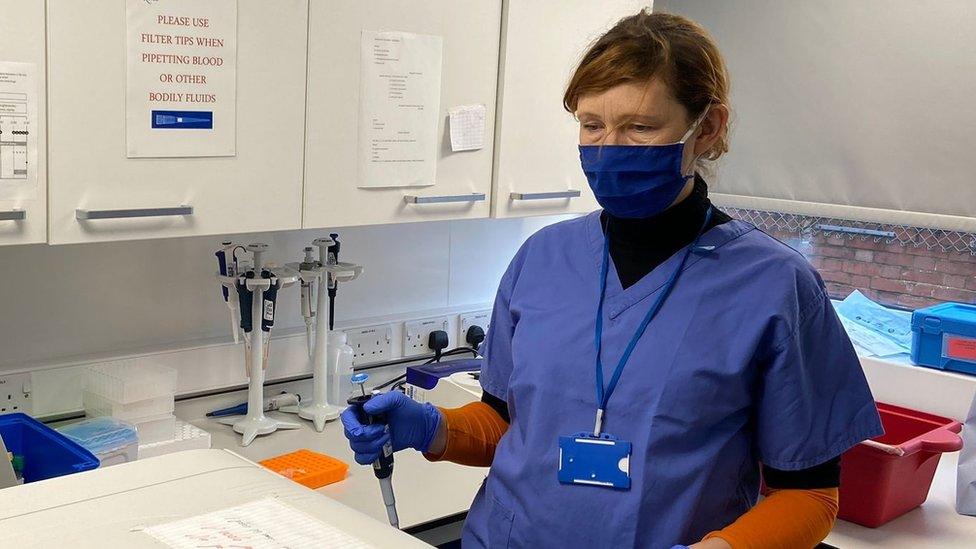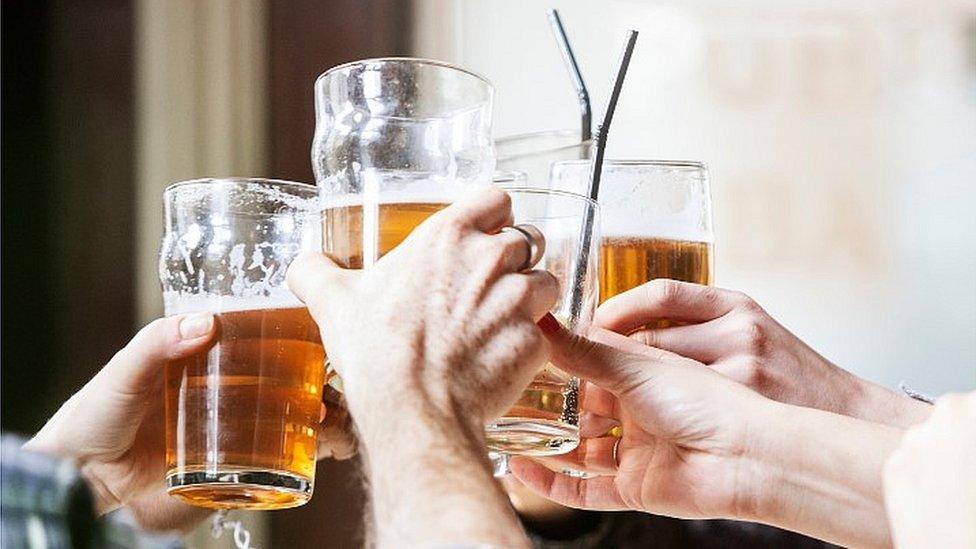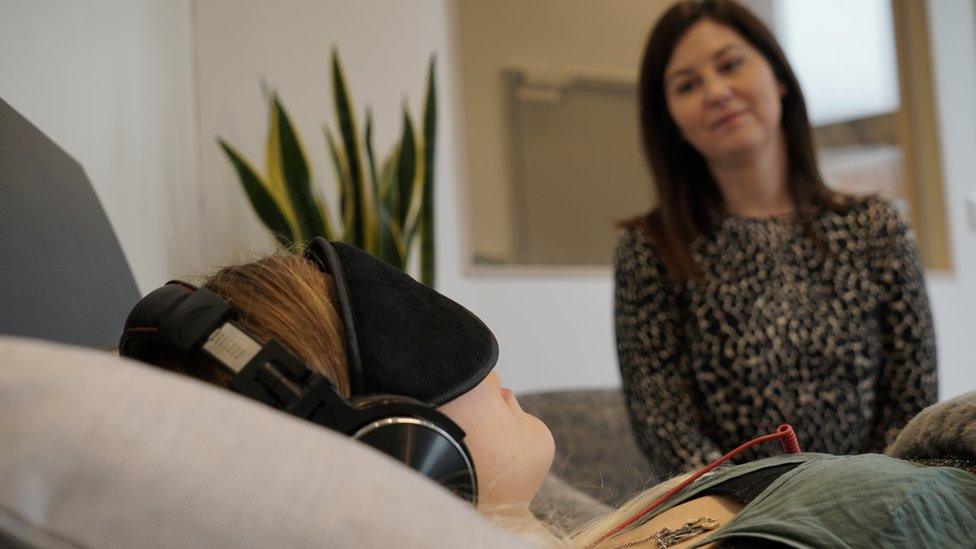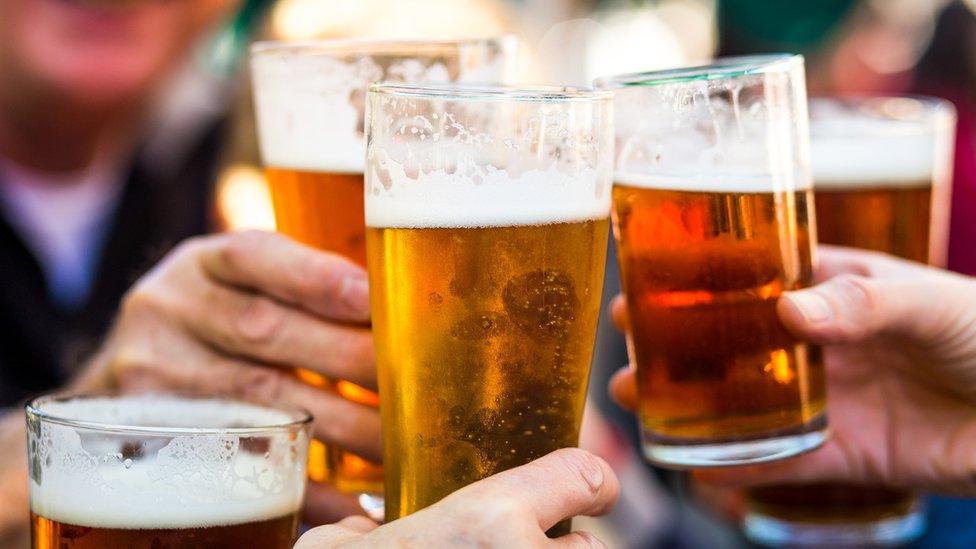Ketamine and psychotherapy 'helps' alcoholics, says Exeter study
- Published

Prof Celia Morgan says ketamine therapy could save the NHS money
Heavy drinkers stayed off alcohol for longer when they were treated with low doses of ketamine and psychological therapy, a study has found.
Academics at the University of Exeter said the combination prevented people from quickly returning to heavy drinking.
The university said it was working with the NHS on how the treatment could be offered to patients.
Ketamine is a class B drug which is illegal to use recreationally.

Devon health bosses and academics are now looking at how the psychotherapy can be offered to patients
Prof Celia Morgan, from the University of Exeter, said: "What we've found in our study is actually when the drug is given on its own the effects are quite short-lived.
"So it acts really quickly, unlike existing antidepressants that take two weeks to work, ketamine works in a matter of hours, but the effects aren't long-lasting.
"What our review found was giving ketamine alongside therapy can actually prolong those effects, so that makes the treatment more expensive, but actually if it's long-lasting then it's a massive cost saving for the NHS."
She said the university and a biotech company had signed an agreement with Devon Partnership NHS Trust and were looking at staff training, facilities, and how it could be delivered to patients.
The study included 96 people with alcohol problems who were abstinent at the time of the trial.
Participants had been drinking every day, consuming the equivalent of 50 pints of strong beer on average per week (125 units).
The team found people who had ketamine combined with therapy stayed completely sober for 162 of 180 days in the six-month follow-up period, representing 87% abstinence.
The study has been published in The American Journal of Psychiatry.
In March 2021, the UK's first ketamine-assisted psychotherapy clinic opened in Bristol.

Follow BBC News South West on Twitter, external, Facebook, external and Instagram, external. Send your story ideas to spotlight@bbc.co.uk, external.
- Published15 March 2021

- Published28 January 2020

- Published26 November 2019
